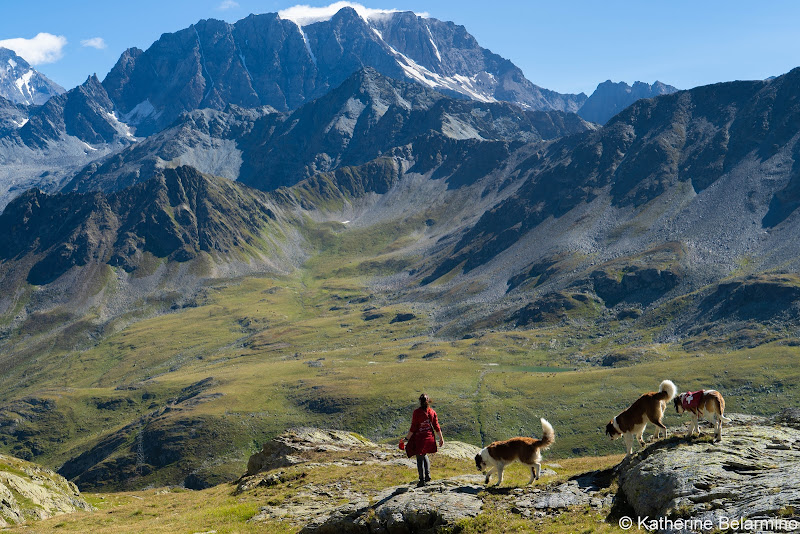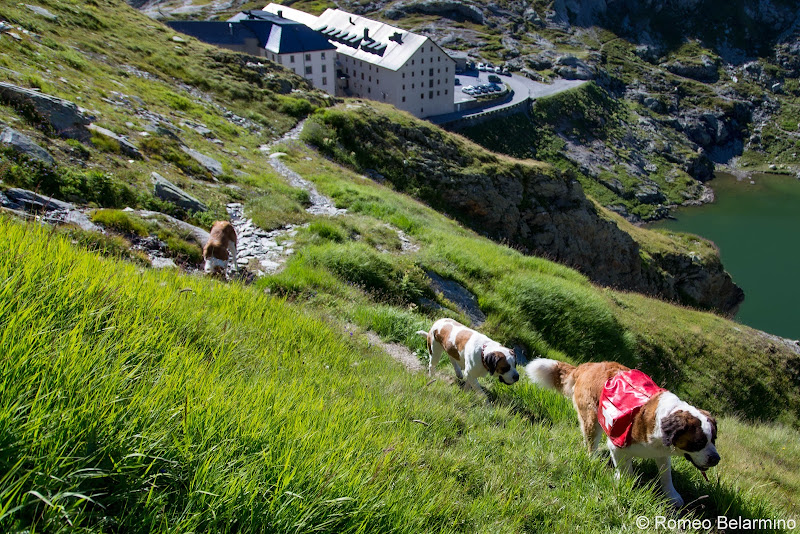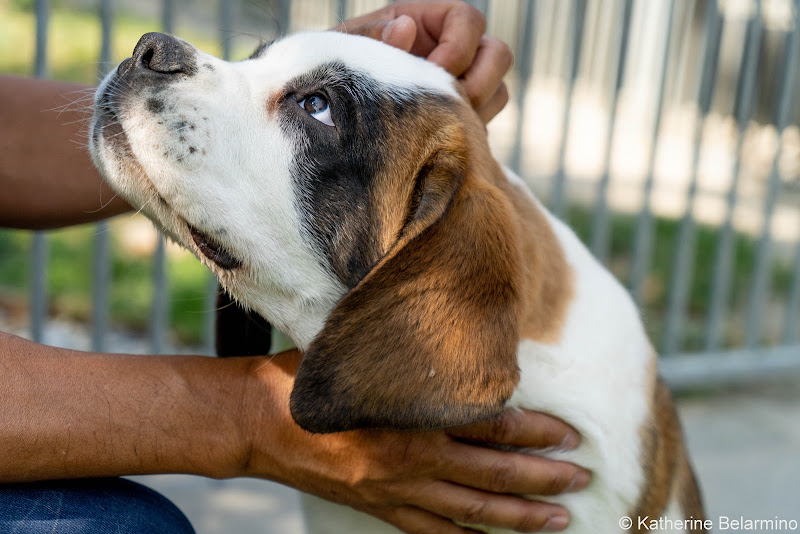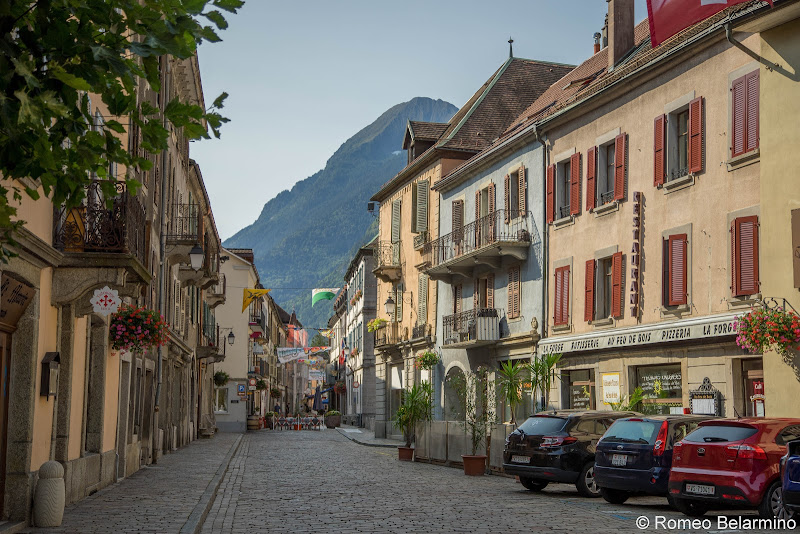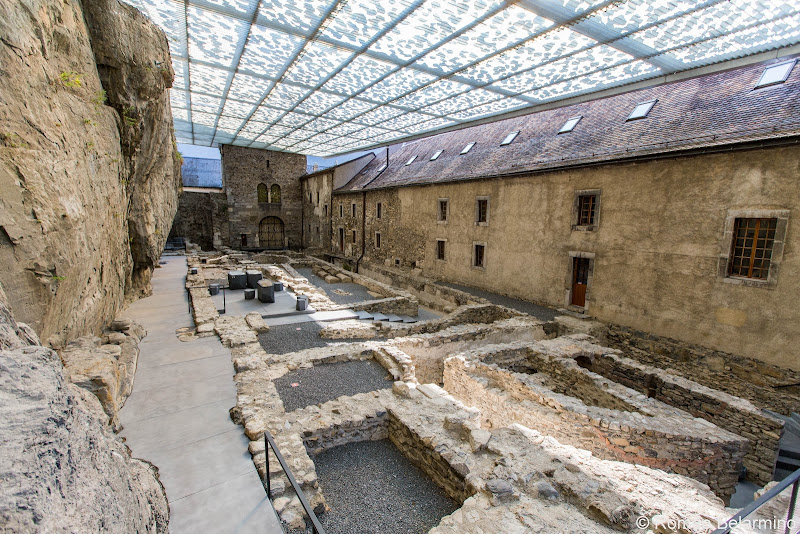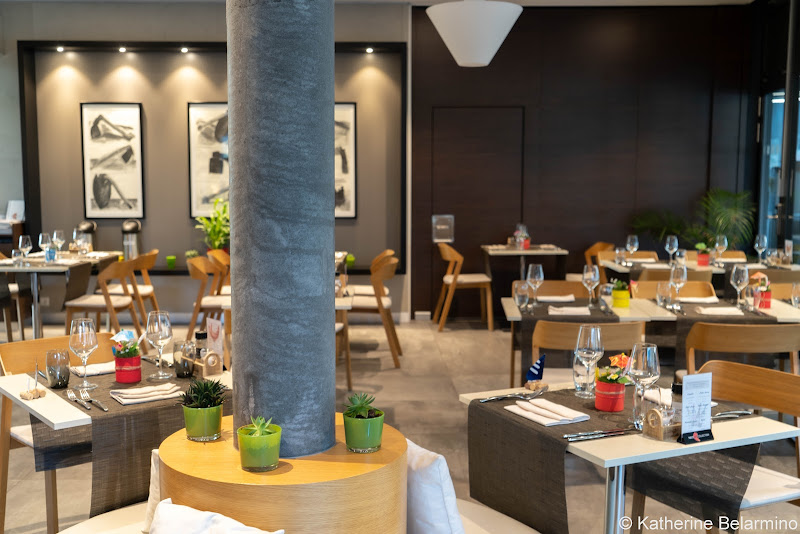We are
usually spring and fall travelers, but when we learned that hiking with
Switzerland’s St. Bernard dogs is an activity that’s only available in summer,
a summer Switzerland vacation was booked immediately.
Of
course, visitors to Martigny, Switzerland can hang out with St. Bernard dogs at
any time of the year, but there is just a short two-month window when visitors
to the area can take a one-and-a-half-hour hike in the mountains of the Great
St. Bernard Pass accompanied by the Barry Foundation’s St. Bernard dogs. Hikes on the pass with the Saint Bernards are available two times a day in July and
August.
The St.
Bernard Pass hike is a beautiful summertime hike. It’s not a difficult hike, though there are
some uphill portions. The views of the
lake and hospice are pretty, and there’s a surprise mountain lake at the top
that the dogs love to play in.
St.
Bernard dogs originated here in Switzerland’s Great St. Bernard Pass. The Pass is one of the stops along the
historic Via Francigena pilgrim route, a 1,700-kilometer trail from Canterbury
to Rome. The Cardinal of Canterbury
traveled to Rome for a cloak. He wrote in
great detail about every leg of his journey, which is how the trail became a
pilgrim route.
The
Great St. Bernard Hospice, located at 2,469 meters, was founded in the 11th
century to house travelers and pilgrims.
The hospice was built using stones from a Roman temple. The priests of the hospice kept St. Bernard
mountain dogs starting in the mid-17th century to guard and protect
visitors to the hospice. They
accompanied travelers and worked as search and rescue dogs. Someone had to be sent out every day in each
direction to see if anyone was coming, and then guide them to the hospice. Once telephone lines were brought in in the
1960s that service ended.
There is
a small building on the property that used to be a macabre tourist
destination. The building was used to
hold unidentified hypothermia victims which over time became mummified. Eventually, the building was completely
enclosed by stone.
In
addition to hiking with the St. Bernard dogs, visitors to the St. Bernard Pass
can tour the hospice and grounds and learn more about the history in the small
museum. There’s also a nice walk around
the lake and the ability to cross the border into Italy.
If
hiking with St. Bernards isn’t enough dog time, or if visiting the region
outside of that two-month window, visitors can also visit Barryland within the city of
Martigny. Barryland breeds Saint Bernard
dogs here, so there are dogs of all ages throughout the year. Barryland is a cute place to learn about the
history and legends of the St. Bernard dog.
Visitors can watch the dogs play, sleep and eat, and can even set up a
photo session with some of the dogs.
There’s an area for kids to play, and the restaurant is a good place for lunch.
There
are more things to do in Martigny than just see St. Bernard dogs, though that
would have been enough for us. For
instance, just next door to Barryland is an old Roman amphitheater. In addition to being able to walk into the
center of the amphitheater, there is an easy trail that circles the perimeter.
Martigny
is also known for its art. Leonard
Gianadda has donated a lot of art to the city that he loves through the
Fondation Pierre Gianadda, created in memory of his younger brother Pierre who
was killed in an airplane accident in 1976.
There are sculptures in every roundabout and there’s an art museum and a
sculpture garden. There’s also a car
museum with the largest collection of Swiss cars.
Just a
few miles outside of Martigny is the Royal Abbey of St-Maurice. This was another stop along
the Via Francigena pilgrim path, in the opposite direction from Martigny than
the Great St. Bernard Pass.
The
story of the Abbey is that a group of Egyptian Christians serving in the Roman
army, under the command of Mauritius, were stationed there. The Roman emperor ordered the Christians out
of town because he thought they were dangerous.
Mauritius and his soldiers declared they wouldn’t persecute Christians,
so instead, they became martyrs and later saints. Saint Maurice is the patron saint of the
Vatican’s Swiss Guard.
We
received a special tour of the abbey led by the Rector who has clearly put his
all into this abbey. We were told that the Royal Abbey of St-Maurice is the most ancient abbey without interruption, having been in operation for 15 centuries. Even though the
abbey is so old, the Rector takes great pride in the modernizations he has
helped create, like the kid-friendly audio guide, the modern and informative
museum, and one of our favorites, the automated front door carved with the
names of religious leaders of the past from all countries and all religions.
The
abbey is perched under a sheer rock face, built that way for protection from
people, but not necessarily the best protection from nature. A rockfall in 1942 allowed archaeologists to
undertake a major dig, leaving a massive archaeological excavation of the
foundations of the earlier churches that can be viewed by visitors today.
One of
Martigny’s unique restaurants is the Moulin Semblanet. The food is delicious and
the menu is full of local specialties.
But what makes the restaurant even more interesting is that it is housed
in an old mill. There’s been a mill in
Martigny since at least the 14th century. The mill still operates and some of the
parts, including the leather belts, are original from 1880.
Keeping
with Martigny’s art theme, we stayed at the mARTigny Boutique Hotel. The hotel is a
boutique hotel with 52 rooms and a restaurant that combines traditional Swiss
with Peruvian cuisine. Something else
that makes the hotel stand out is that it provides jobs to people with
disabilities.
Getting
to the Grand St. Bernard Pass is easy using Switzerland’s public transportation system and the Swiss Travel Pass. A train travels from Martigny to Sembrancher,
where a train transfer continues on to Orsieres. From Orsières a bus, the St. Bernard Express,
travels up the mountains to the Grand St. Bernard Hospice.
Thank you to Valais Wallis Promotion, Switzerland Tourism,
Office de Tourisme Martigny and Barryland for hosting our time in Martigny
and making this article possible. As
always, all opinions are our own. This article may contain affiliate links.


